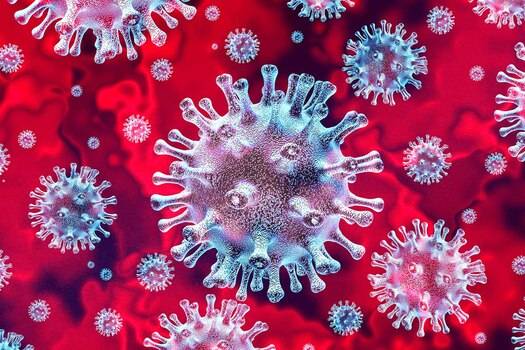Table of Contents
INTRODUCTION
- A pneumonia of unknown cause detected in Wuhan, China was first reported to the WHO Country Office in China on 31st December, 2019.
- WHO is functioning 24/7 to research data, provide advice, coordinate with partners, help countries prepare, increase supplies and manage expert networks.
- The outbreak was declared a Public Health Emergency of International Concern on 30th January, 2020.
- On 11th February 2020, WHO announced a name for the new coronavirus disease: COVID-19.
CONSTITUTION OF INDIA
Public Health has been defined as the science and art of preventing disease, prolonging life, and improving quality of life through organized efforts and informed choices of society, organizations, public and private, communities and individuals.
Article 39(e): The State shall, especially, direct its policy towards securing the health and strength of workers, men and ladies , and therefore the tender age of youngsters aren’t abused and that citizens aren’t forced by economic necessity to enter avocations unsuited to their age or strength.
Article 47: It’s the duty of the State to boost the extent of nutrition and therefore the standard of living and to enhance public health.
THE EPIDEMIC DISEASES ACT, 1897
This act provides for the higher prevention of the spread of Dangerous Epidemic Diseases. It provides the stern measures to curb the epidemics by providing special powers for implementing the containment measures.
Section 2 Power to require special measures and prescribe regulations on dangerous epidemic disease: When at any time the government is satisfied that the State or any part thereof is visited by, or threatened with, an epidemic of any dangerous infectious disease , the government , if it thinks that the standard provisions of the law for the time being effective are insufficient for the aim , may take, or require or empower a person to require , such measures and, by public notice, prescribe such temporary regulations to be observed by the general public or by a person or class of persons because it shall deem necessary to stop the outbreak of such disease or the spread thereof, and may determine in what manner and by whom any expenses incurred including compensation if any shall be defrayed.
Section 3 Penalty: A person disobeying any regulation or order made under this Act shall be deemed to possess committed an offence punishable under section 188 of the Indian Penal Code (45 of 1860).
THE EPIDEMIC DISEASES (AMENDMENT) ORDINANCE, 2020
- Promulgated by President on 22nd April, 2020
- This Act provides for:
Nature of Offence: Cognizable and Non-Bailable Offences. Compensation: It also provides compensation for injury to healthcare service personnel or for causing damage or loss to the property in which healthcare service personnel may have a direct interest in relation to the epidemic.
Meaning of Violence: Violence includes harassment, physical injury and damage to property.
Investigation within 30 days: Offences shall be investigated by an officer not below the rank of Inspector within a period of 30 days.
Trial within One Year: Trial has to be completed in one year, unless extended by the court for reasons to be recorded in writing.
a) OFFENCE: Commission or Abetment of acts of Violence
IMPRISONMENT: 3 months to 5 years
FINE: Rs.50,000/- to Rs.2,00,000
b) OFFENCE: In case of causing grievous hurt
IMPRISONMENT: 6 months to 7 years
FINE: Rs.1,00,000 to Rs.5,00,000
COMPENSATION: Liable to pay twice the fair market value for damage of property
INDIAN PENAL CODE, 1860
(1) No Cognizance Without Written Complaint: Non-compliance of directions of public servants and hiding themselves is an offence which will come under sections 172 to 174 & 188. For such offences, Court cannot take cognizance without prior written complaint of that public servants who have issue such order or direction [Section 195 (1) (a)].
SECTIONS
Section 172: Absconding to avoid service of summons or other proceeding Section 173: Preventing service of summons or other proceeding, or preventing publication thereof
Section 174: Non-attendance in obedience to an order from employee Section 177: Furnishing false information
Section 188: Disobedience to order duly promulgated by public servant
SECTION 195 (1) (a), CrPC
Section 195 (1) (a): Prosecution for contempt of lawful authority of public servants
(1) No Court shall take cognizance-
(a) (i) of any offence punishable under Sections 172 to 188 (both inclusive) of the Indian legal code , or
(ii) of any abetment of, or plan to commit, such offence, or
(iii) of any criminal conspiracy to commit such offence, except on the complaint in writing of the general public servant concerned or of another employee to whom he’s administratively subordinate.
(2) Cognizance without written complaint (Here FIR is lodged)
Knowingly or negligently spreading communicable disease and non-compliance of quarantine rule is an offence under sections 268 to 271, IPC. For such offence, there is neither need of prior sanction nor written complaint of any authority. Court can take cognizance in such cases.
Sections
Section 268 Public nuisance
Section 269 Negligent act likely to spread infection of disease dangerous to life
Section 270 Malignant act likely to spread infection of disease dangerous to life
Section 271 Disobedience to Quarantine Rule
THE DISASTER MANAGEMENT ACT, 2005
The Act provides for the effective management of disasters and for matters connected therewith or incidental thereto. Lockdowns are being declared by this Act by NDMA (Central Government) and SDMA (State Government). Prime Minister (Section 3) and Chief Minister of the State (Section 14) are ex officio Chairperson of the NDMA and SDMA. Lockdowns are declared by these Chairpersons by using powers conferred under Section 6 and Section 14. Sections 51 to 60 deals with the offences and penalties.
Author: Komal Bansal,
LAW CENTRE-1, FACULTY OF LAW, UNIVERSITY OF DELHI, 1st Year, Student

